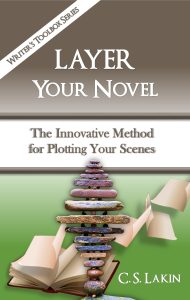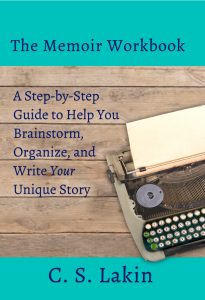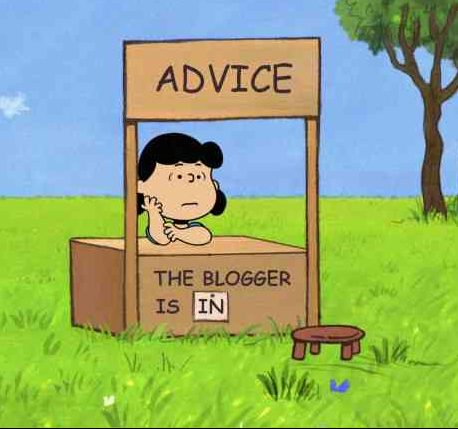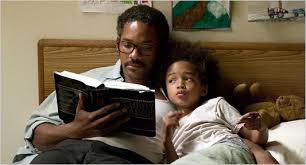3 Important Tips if You’re Planning to Write a Memoir
Author Toni Morrison said, “If there’s a book that you want to read, but it hasn’t been written yet, then you must write it.”
These words have prompted me over the years to write many of my novels and writing craft books. Often I’ve come up with an idea or concept for a book, then searched online to find the books already dealing with that topic or novelizing my idea. On occasion, I’ve been both sad and heartened to find that my idea “has already been done.”
I even wrote an entire treatment and script for a great new TV series, years back, that I called “Thirty.” It was about a group of thirty-somethings that were dealing with various issues: aging parents, workplace struggles, identity confusion, difficulties juggling career and raising children.
Just when I was ready to shop my series idea, a new TV show came on the air. I probably don’t have to tell you what it was called. Needless to say, it was a successful series, which I enjoyed, though I was disappointed my name wasn’t on the rolling credits.
 Last year I put Layer Your Novel together because even though there are hundreds of books on writing novels, I couldn’t find anything that used a layering technique to plot and organize scenes. I didn’t have any intention of writing a book of scene placement, since there were plenty of books on the subject. But . . . this was a book I felt novelists needed, and since it hadn’t been written, I wrote it.
Last year I put Layer Your Novel together because even though there are hundreds of books on writing novels, I couldn’t find anything that used a layering technique to plot and organize scenes. I didn’t have any intention of writing a book of scene placement, since there were plenty of books on the subject. But . . . this was a book I felt novelists needed, and since it hadn’t been written, I wrote it.
A few months back, I started thinking about putting on workshops to teach memoir writing. I was getting numerous requests from people all around me asking if I would teach this. So I started down the path of devouring memoirs and books on writing memoirs to glean all I could from what was out there.
But, to my surprise, the one book I wanted to find (and thought for sure would be “out there”) was a memoir workbook that focused on the elements important to me.
I found a few workbooks, but they were really about chronicling autobiography, starting from birth, family genealogy, and having you move through your entire life. Which is not what memoir is about. Memoir deals with a specific capsule of time, dealing with specific events for a specific purpose.
These workbooks had prompts to help inspire writing flow and mine memories, but . . . they just didn’t present the material in a way that I felt best. Of course, that’s just my opinion, and I’m sure many find these books very useful.
So . . . you guessed it. I set to work creating a memoir workbook.
I learned a lot in these months of research, and while my workbook only covers the basics about brainstorming, organizing, and writing a memoir (otherwise it would be a book as thick as a hundred bricks), I focused on the key elements of memoir that I feel are so important.
I aim to share some of these with you, as I haven’t done any posts in all these years on my blog about memoir writing. I edit and critique a lot of memoirs, so the first thoughts I had were about purpose and audience (as expected).
Why Are So Many Memoirs Boring?
A lot of memoirs I work on are boring. Which got me thinking about why they were boring to me.
They were boring because, just as with some novels, the material didn’t engage me. The content didn’t interest me or apply to me or satisfy my desire for entertainment, enlightenment, or inspiration.
Before I wrote The Memoir Workbook, I first researched posts on what not to do when writing a memoir. I studied why certain memoirs didn’t sell. And what I found could be boiled down to some basics.
But before I go there, let me say this: many people don’t write a memoir in order to sell it or make money off of it. They write it for personal reasons. Maybe they write it just for themselves or their family. Which is perfectly fine.
But I would argue that the same advice applies to any memoir, whether you hope to make it a best seller or just write it for your family or yourself.
Point #1: If you don’t have a focus or purpose (think: theme) for your memoir, you might tend to write about experiences or moments in your life that don’t seem to have a point to them. Just as with a novel, if you write a series of scenes that don’t tie in with your premise, such as having characters sitting around drinking coffee, readers will get bored and feel the book is merely a string of random scenes.
So focus or purpose is important.
Fill in the blanks: My memoir is about a time in my life when ___ and I learned ___.
That alone will help you hone your purpose in writing.
Point #2: That purpose or theme needs to be universal in some way. Readers of some group or another should be able to relate or empathize which what you went through. Even if you are writing a memoir about a career (a secret service agent or inner-city schoolteacher), your memoir needs to center on the feelings and insights and challenges you had in a way that readers understand and experience the journey with you in an engaging way.
Point #3: People tend to think their life is so fascinating that thousands of readers will be riveted to their story. Not true. Memoirs can feel like home movies—the kind our friends subject us to, gushing how cute their kids are or how amazing their work project is, all the while we are yawning and trying to be polite and excuse ourselves so we can go do something else.
 If you plan to write a memoir for others to read, and especially if you want to sell it to strangers, you need to realize you’ll have to make your story riveting. If it intrinsically isn’t all that exciting or interesting in general—if you haven’t done something amazing or had an incredible career or faced tremendous challenges in some way, then maybe you don’t have all that great a story to tell.
If you plan to write a memoir for others to read, and especially if you want to sell it to strangers, you need to realize you’ll have to make your story riveting. If it intrinsically isn’t all that exciting or interesting in general—if you haven’t done something amazing or had an incredible career or faced tremendous challenges in some way, then maybe you don’t have all that great a story to tell.
This isn’t meant to belittle your story—not at all. Everyone has a story, plenty of stories to tell that might be entertaining or instructional or inspiring. But you need to step back and assess whether you have the kind of story that will truly interest people who don’t know or care about you.
If you’re a famous person, you have a leg up on those who aren’t. But most people desiring to write a memoir can’t use the “famous” card in order to achieve success with their book.
In upcoming posts I’ll share some of the content I developed for my memoir workbook. My objective in writing the workbook, primarily, was to help people understand what memoir is and isn’t, as well as prompt exploration of personal story to help get going in brainstorming and organizing all those memories and experiences.
If you’ve thought about writing a memoir, check out the workbook. It’s available only in print because you need to pick up a pen or pencil and actually write in it. I feel the process of using a pen on paper is super helpful to get writers to slow down and think. And writing the old-fashioned way allows for you to go sit someplace quiet or even remote, away from distraction and computers and the internet.
You can buy The Memoir Workbook here on Amazon.
Have you thought about writing a memoir? What have you gone through in life that you think might interest readers and why?












Hi C.S really disappointed that this workbook doesn’t seem to be available in e-book format for Kindle. Please let me know if you’re planning an e- book edition. Would love this workbook.
Many of my coaching clients are writing their memoirs, so I look forward to recommending this resource to them.